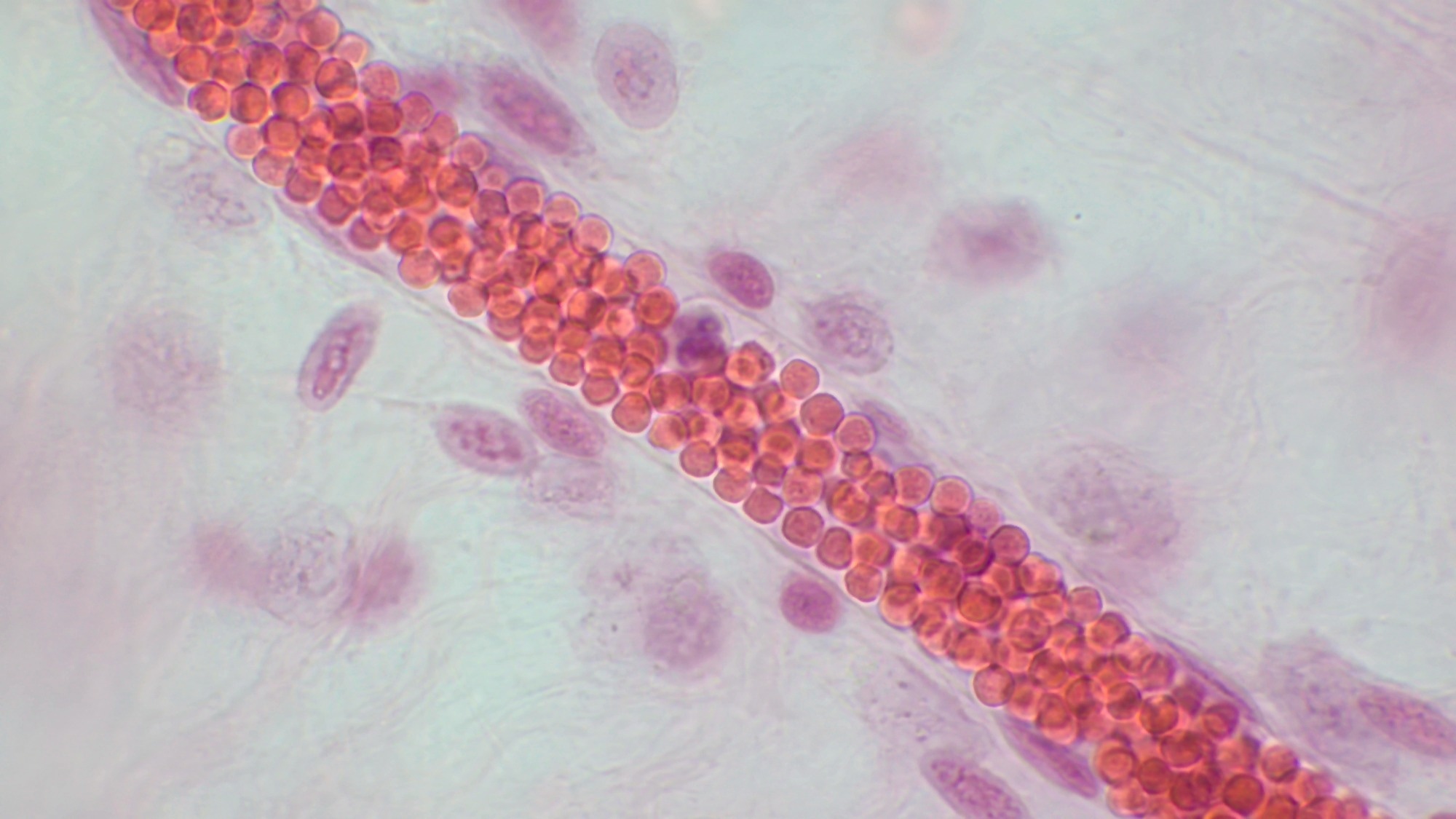In a recent review published in the journal Immunity, Taylor J. Stevenson, Luca Vinnell, and Justin Rustenhoven of the University of Auckland, Auckland, New Zealand, clarified the role of platelet factor 4 from young blood in combating age-related hippocampal deficits and enhancing cognitive functions in older mice, addressing the growing challenge of dementia-related conditions.
 Spotlight: “Bloody” good factors for keeping the brain young. Image Credit: BioFoto / Shutterstock
Spotlight: “Bloody” good factors for keeping the brain young. Image Credit: BioFoto / Shutterstock
Background
The quest for a life-renewing elixir is age-old, paralleled by groundbreaking research indicating young blood's potential to mitigate cognitive aging through parabiosis. This process, essentially merging the circulatory systems of young and old mice, hints at a rejuvenating property in youthful blood. Subsequent studies suggest these effects do not rely solely on whole cells, as even cell-free plasma can impart these benefits. This plasma retains platelets, small elements crucial for clotting. Schreor and colleagues pinpoint a specific component of these platelets, platelet factor 4 (PF4), as instrumental in reversing aging-related cognitive decline. Their discoveries underscore the necessity for further exploration into the constituents of young blood and their therapeutic potential in age-related cognitive disorders.
Introduction to the elixir in young blood
For centuries, humanity's quest for the mythical fountain of youth has been mirrored in recent scientific endeavors, uncovering that young blood might indeed harbor factors capable of reversing age-related cognitive decline. Schroer et al. delve into this phenomenon, exploring the components of young blood and their effects on aging brains, particularly focusing on PF4 and its potential role in mitigating cognitive aging.
Experiments with young blood components
Schroer and colleagues began by administering various young blood fractions—either plasma preparations or platelet-rich fractions—to aged mice via intravenous injections. To investigate potential rejuvenating effects on the brain, they conducted extensive analyses, including ribonucleic acid (RNA) sequencing, quantitative polymerase chain reaction (PCR), and immunostaining on the hippocampus, a region vital for memory and learning. They found a significant reduction in pro-inflammatory gene expression and markers of activated microglia, suggesting that elements in young plasma and platelet fractions might reduce age-related neuroinflammation.
Unveiling the secret agent: PF4's crucial role in rejuvenation
The search for specific components responsible for these effects led the team to PF4, a platelet-derived chemokine with roles in coagulation and immunomodulation. PF4 was present in large quantities in young mice's platelet fraction and young humans' platelet-rich plasma, but it was substantially reduced in their aged counterparts. Notably, systemic PF4 supplementation appeared to alleviate age-related hippocampal neuroinflammation, reducing pro-inflammatory gene expression and microglial activation.
The role of the immune system
The immune system's intricate communication with the central nervous system (CNS) is well-documented, and aging is known to alter this interaction. The researchers turned their attention to the immune system, considering it a possible intermediary in CNS modulation. They discovered that PF4 could rejuvenate the peripheral immune system, reflected by a reduction in pro-aging immune molecules, pointing to this attenuation as a possible mechanism behind PF4's effects.
Impacts on Learning and Memory
Given these findings, the team questioned if PF4's immunomodulatory actions could reverse cognitive deficits related to aging. Behavioral tests revealed that aged mice receiving young plasma or platelet fractions showed improved learning and memory. PF4 injections resulted in similar enhancements, indicating its significant role in these cognitive benefits.
Unraveling the mechanisms of action
The team also investigated the mechanisms through which PF4 might exert its benefits. They identified the C-X-C motif chemokine receptor 3 (CXCR3) as a key player in PF4 signaling, though it is evident that some PF4 effects are CXCR3-independent. These discoveries suggest a complex interaction where CXCR3 mediates some of PF4's cognitive benefits.
The complexity of PF4's role
The study highlights PF4's complex role in cognitive health, suggesting its functions extend beyond a singular pathway. Unraveling the reasons behind the decline of PF4 in older individuals' plasma is crucial, as is deciphering the regulatory mechanisms of its secretion. Identifying these elements could provide valuable insights and potential targets for therapies aimed at mitigating cognitive deterioration associated with aging.
Caution in application
While these findings are groundbreaking, it is crucial to approach the potential application of PF4 with caution. Its effects in the context of normal aging might differ significantly from its impacts in neurological diseases like Alzheimer's. The neuroimmunology underlying PF4's cognitive benefits could be more complex under pathological conditions.
Conclusion and future directions
Schroer et al.'s research illuminates the therapeutic potential of PF4 in cognitive rejuvenation. While directly supplementing with young blood may raise ethical concerns, isolating specific beneficial factors like PF4 presents a compelling avenue for treatment strategies in brain aging. However, numerous questions remain unanswered, highlighting the need for continued research into the molecular mechanisms involved and the broader implications for full-body rejuvenation. Additionally, understanding PF4's precise role, its interaction with immune cells, and its varied effects in the context of different aging stages and health conditions will be critical in translating these findings into effective, safe therapeutic applications.